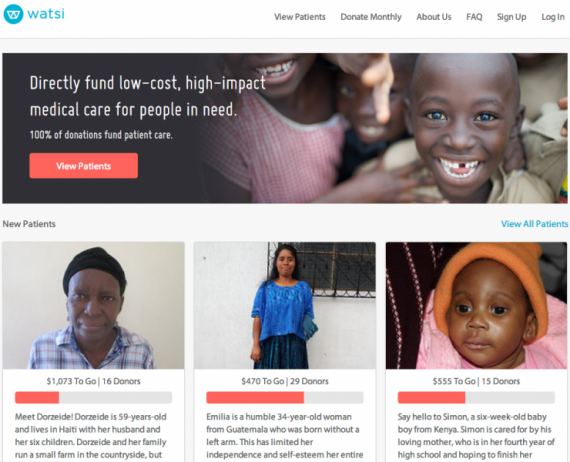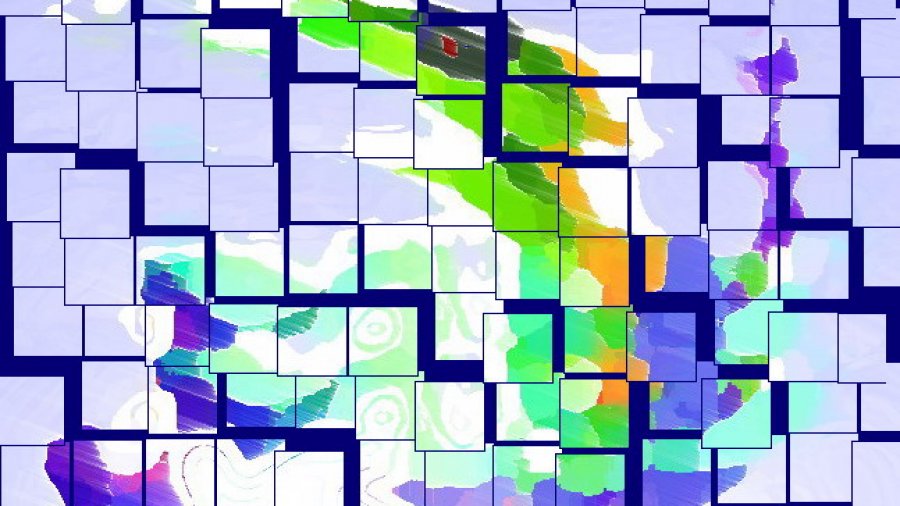Crowdfunding is f***ing cool, and it’s changing the world.
Unless you pulled a Rip Van Winkle the past few years, you know about crowdfunding. It’s that thing where people launch campaigns to raise money for some project, endeavor, or financial need, and groups of strangers, friends, and/or followers kick in a few bucks to collectively foot the bill.
This method of funding everything from healthcare costs to artistic projects to potato salad has seen a meteoric rise in recent times. In 2012, more than one million crowdfunding campaigns were successfully funded, raising some $2.7 billion. That number is expected to increase to $5.1 billion for 2013. By 2025, the global crowdfunding market is projected to reach between $90 billion and $96 billion. Oh, and the word “crowdfunding” didn’t even exist until 2006.
Locating Crowdfunding Within a Larger Trend
A couple months ago, I wrote an article on a 21st-century macro-trend in technology called decentralization. One way to define decentralized technologies is: technologies which assist individuals directly, circumventing the need to rely on large, centralized authorities or institutions.
3-D printers, Airbnb, renewable energy systems, online education resources, and crowdfunding platforms are prime examples of decentralized technologies that are disrupting the need for centralization in various industries. By and large, this trend seems to have a number of benefits. I wrote:
“As one examines the possibilities that arise with decentralized technologies, a few themes begin to emerge: self-sufficiency, sustainability, generosity, community, & empowerment. Cool stuff, by my humble estimation.”
And of crowdfunding in particular, I wrote:
“Historically, funding for large entrepreneurial, artistic, or non-profit endeavors has come from venture capitalists, angel investors, and other people who barely exist to the average person. Crowdfunding changes this, giving people the opportunity to pitch ideas to communities of strangers who will often generously toss in some money and fund a project. Everyone has heard of Kickstarter by now, but it’s far from the only option. The decentralized funding model has been creatively applied to other sectors as well.”
I Can Has Freedom?
One nice thing about living in our modern world of innovation and work-diversity is that we (theoretically) have more freedom than ever to create a lifestyle that is well-suited to our needs. One integral aspect of creating such a lifestyle is to become aware of the tools and possibilities that are available to us.
And yet it’s astonishing how many of us don’t do this—i.e. fail to consider the myriad ways in which technological innovation has expanded our potential avenues in life and work.
Crowdfunding is one such possibility-expanding technology, but it may yet be unclear to you just how you might harness the wonders of crowdfunding, and what, exactly, those wonders are. My aim here is to change that.

Fractales, huile 2007, par Jean-Philippe Carpentier. Photo Credit: Wiki Commons
Wonders of Crowdfunding
The primary wonder of crowdfunding is the obvious one: if you have a creative idea and people think its worthwhile, they will give you money to make it a reality.
Although financial support is the primary objective of a crowdfunding campaign, there are several additional benefits for campaign creators. Here are four examples from the infinite sea of precious knowledge, Wikipedia:
- Profile – a compelling project can raise a producer’s profile and provide a boost to their reputation.
- Marketing – project initiators can show there is an audience and market for their project. In the case of an unsuccessful campaign, it provides good market feedback.
- Audience engagement – crowd funding creates a forum where project initiators can engage with their audiences. Audience can engage in the production process by following progress through updates from the creators and sharing feedback via comment features on the project’s crowdfunding page.
- Feedback – offering pre-release access to content or the opportunity to beta-test content to project backers as a part of the funding incentives provides the project initiators with instant access to good market testing feedback.
So for an artist, entrepreneur, or creator of any kind, a crowdfunding campaign can be seen as an experiment that simultaneously provides market exposure and valuable insight into one’s audience and project quality. Oh, and capital.
Crowdfunding is wonderful in another sense too: it encourages us to be more generous in support of the things we think are truly important. And as we’ll see below, the crowdfunding model is now being utilized to tackle some of the world’s most pressing issues.
How the Magic is Being Harnessed
Most people are aware of crowdfunding giants like Kickstarter and Indiegogo, but there are literally hundreds of other more specialized takes on the crowdfunding model.
Let’s run through a sampling of some of the coolest crowdfunding platforms and efforts happening in the world today. Hopefully this will give you a sense of the immense breadth of possibility offered by crowdfunding and spark a few ideas for how you might one day utilize crowdfunding to bring something new into the world or help out a friend or stranger:
Patreon
Patreon is an exceedingly awesome platform that allow fans of creators to provide ongoing financial support of their work. I love Patreon because it focuses on continual support, rather than funding for a single, large project. I also love its focus on content creators. Patreon funds all kinds—musicians, YouTubers, web comic artists, writers, bloggers, indie gamers, video producers, podcasters, animators, photographers, and more.
Basically, if you regularly make something that people appreciate, Patreon gives your fans the opportunity to show love, monetarily. Note that Patreon, as with other crowdfunding platforms, functions most effectively after one has already built some sort of fanbase, though this is not a necessity.
Subbable
Subbable is quite similar to Patreon—a platform that allows online creators to be supported by their niche communities. Subbable’s focus is on creating an online revenue model that isn’t based on advertising. From their website:
“With ad-based revenue models, many projects are unsustainable unless they have millions of views, but some of the best niche content that we care about the most isn’t going to appeal to millions of people. Not everyone wants to watch educational videos about biology or learn of a man’s eccentric universe of many clones. But those of us who do watch really care, and want these projects to grow and thrive.
Subbable exists to reward content creators who provide real value to their communities. We hope it will allow creators to focus not on getting the most viewers but on providing the most valuable stuff to viewers. And we hope, in turn, that viewers will choose to support that content even though it’s free to watch and enjoy.
Is that idealistic? Hell yes, it is.”
Beacon
Beacon is unique twist on crowdfunding that focuses on sustainable independent journalism. Beacon allows readers to directly support writers a subscription-based, crowdfunding model. The kicker is that when you subscribe to a writer on Beacon, you also gain access to the work of every other Beacon writer—100+ journalists all over the world writing about everything from net neutrality to climate change.
My Beacon Campaign: About 10 days ago, I launched a campaign on Beacon for a cultural awareness project called ‘Asia in the 21st Century’. I will be traveling to 10 Asian countries to write reflective narratives on human behavior and cultural norms across Asia, with a peripheral focus on technology and globalization. At this point, I’ve raised over $1,100 and have just a few days left to get a total of at least 25 supporters and fund my project. I’m almost there. Please take a look at my project here and consider supporting me.

RocketHub
RocketHub is an extraordinary crowdfunding website that “support[s] a diverse ecosystem for art, science, business, and social good.” RocketHub is the leading crowdfunding website for education projects and partners with governments, educators, and communities to expand crowdfunding potential. Whereas some crowdfunding websites attract a fair amount of zany, just-for-fun-type projects (nothing wrong with that), RocketHub is focused exclusively on enriching communities, and I appreciate that.
PledgeMusic
PledgeMusic is what it sounds like—a crowdfunding platform for music. What’s cool about PledgeMusic is that fans support projects from their inception and are given exclusive insight and updates into the music-making process, as it happens. PledgeMusic also believes in giving back to the community, encouraging their artists to donate a percentage of proceeds to a charity of their choosing.
GlobalGiving
GlobalGiving is awesome—a crowdfunding platform focused exclusively on social entrepreneurship and non-profit work. From their website:
“The world is full of problems. GlobalGiving is full of solutions. Solutions run by innovative, grassroots projects and organizations that are working to educate children, feed the hungry, build houses, train women (and men) with job skills, and hundreds of other amazing things.
GlobalGiving is a charity fundraising web site that gives social entrepreneurs and non-profits from anywhere in the world a chance to raise the money that they need to improve their communities. Since 2002, GlobalGiving has raised $144,497,661 from 394,883 donors who have supported 10,341 projects.”
Zidisha
Zidisha is a brilliant approach to the problem of funding entrepreneurship in developing countries. It would probably be more accurate to call it a crowd-loaning platform because it is centered around the concept of funding microloans for small business owners. Would-be borrowers apply, and potential loaners bid to fund all or part of the loan and to set the interest rate. Zidisha is one of many crowdfunding projects proving that the Internet can make geography irrelevant, allowing people to help those in-need, wherever they may be.
Watsi
Watsi is similar to Zidisha, in that it is overcoming geographical challenges to assist those in developing nations. Instead of microloans, Watsi focuses on healthcare, crowdfunding medical bills for individuals in-need. On their website, Watsi shows you the faces and tells you the stories of the people who need medical assistance. This helps one to envision the true human impact of a contribution. I think the folks at Watsi have created something truly incredible.

What Could You Build?
When I think about crowdfunding, I imagine the innumerable projects and endeavors throughout human history that have not come to fruition because people lacked the money and resources to make them a reality.
Financial reasons not to do something may have been entirely valid in the past, but nowadays, they often aren’t. If you genuinely care about a project and want to make it happen, chances are there’s a group of generous people out there waiting to help you.
So, really, the question to ask is: what would you make? And, uh, why not try to make it?
I mean, I’m going to die someday, and you’re going to die someday, and we have no idea when. Maybe we should make some cool shit before that happens.
What you create will outlive you, and it will make the world richer and more diverse. So, make it, and then tell me about it. I like things people make.
“Others have seen what is and asked why. I have seen what could be and asked why not. ”
Pablo Picasso
If this was cool, subscribe.
P.S. Again, please take a look at my Beacon campaign. Help me make my project a reality.
About Jordan Bates
Jordan Bates is a Lover of God, healer, mentor of leaders, writer, and music maker. The best way to keep up with his work is to join nearly 7,000 people who read his Substack newsletter.




